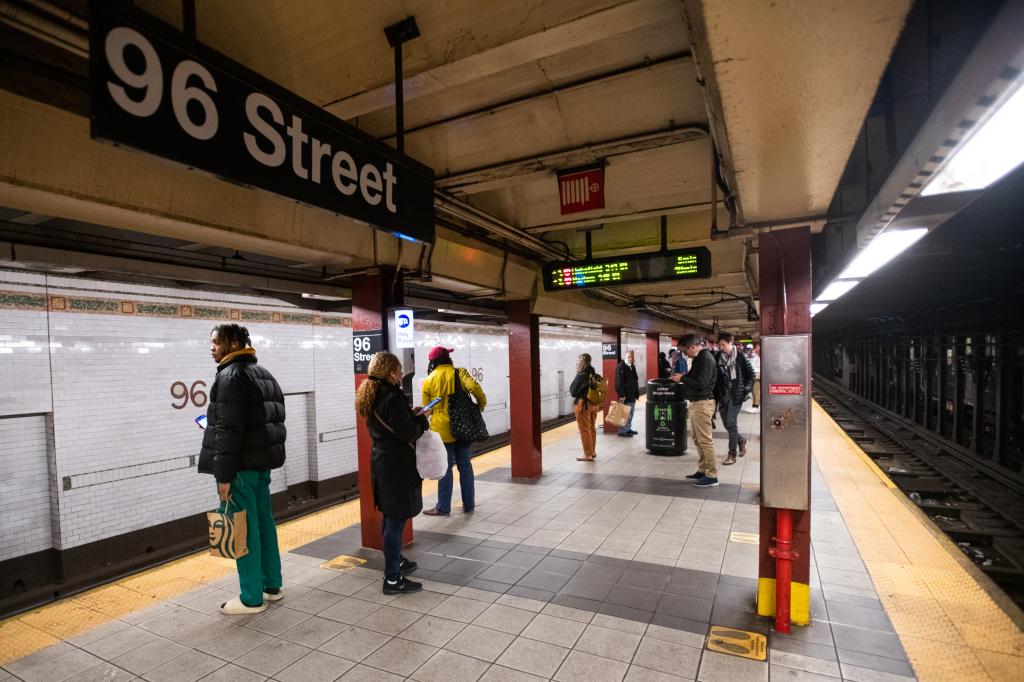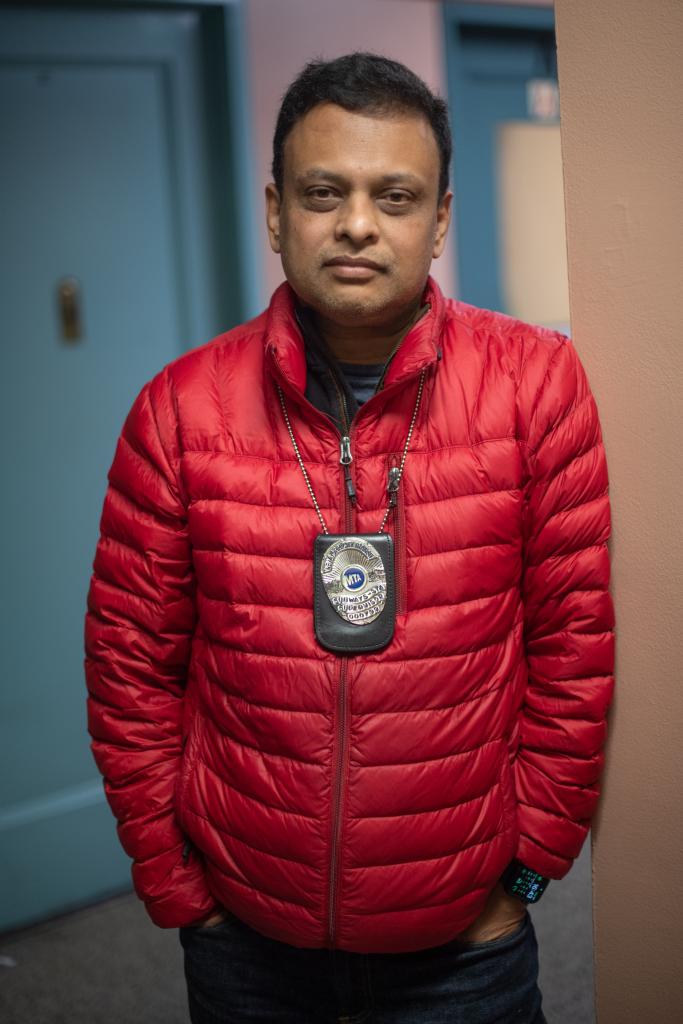An MTA supervisor who was attacked and nearly pushed onto the subway tracks in Manhattan is outraged that District Attorney Alvin Bragg is prosecuting the case as a measly misdemeanor — despite a new law requiring assaults on transit workers be charged as felonies.
Saim Montakim, 49, told The Post he “could have died” during the unprovoked April 18 beatdown, which occurred on the uptown platform while waiting for the No. 1 train at the 96th Street station on the Upper West Side.
The “shocked” supervisor is demanding Bragg deliver justice and upgrade the charges against Nnamadi Okoro, 34, who was arrested in the incident.
“He had the intention to push me on the tracks. He had intentions to kill me,” Montakim said of Okoro, adding he “should be banned from the whole transit system. He should be behind bars.”
The on-duty employee had finished inspecting the 96th Street subway station and was waiting for the train to take him to his next inspection at the 125th Street station when he was ambushed around 3 a.m.
“It happened so quick. Thank God I did not fall on the tracks,” Montakim told The Post.
“I was fairly close to the yellow line because the train was approaching the station. When he pushed me, I was able to prevent falling,” the 10-year MTA veteran recalled. “I jumped back to the stairway and told him I was an MTA supervisor. I pulled out my badge and ID.”
The 5-foot-8, 180-pound Montakim said his “taller, heavier” attacker then punched him in the face “several” times before running away.
Okoro was charged with only third-degree assault, a misdemeanor, court papers show.
The charge carries a possible sentence of up to a year in jail.
Under the 2022 law, criminals found guilty of assaulting a transit worker could face up to seven years in prison.
A judge let Okoro go on supervised release, following a prosecutor’s request.
All MTA workers are included in the state law that imposes stiffer penalties on those who attack transit workers.
The law, which makes attacking an MTA employee second-degree assault, was previously limited to train conductors and operators.
It currently encompasses 11,000 total workers, including “customer assistants, ticket or revenue collectors, maintenance workers, repairers, cleaners, and their supervisors,” Gov. Kathy Hochul announced in June.
“We are continuing to investigate,” said Bragg spokesman Douglas Cohen.
Montakim was on-duty — working the 11 p.m. to 7 a.m. shift — when he was attacked.
The case is “absolutely outrageous and unacceptable,” said Michael Carrube, president of the Subway Surface Supervisors Association, the union representing MTA supervisors. “The law we passed last year making assaults on supervisors an assault in the second degree was passed because our members are getting assaulted at an alarming rate — 14 assaults in stations division alone last year and five already this year.”
“There must be zero tolerance for these violent attacks on my members,” he added.
Transit President Richard Davey called the assault “outrageous,” and called for the DA to “provide maximum possible justice for the victim, including consideration of banning the attacker from NYC Transit.”
“I don’t think I will ever forget this incident. I never thought it could happen to me,” Montakim said. “Most of the time I use public transportation. Now, I’m really scared to even go near a subway station.”








